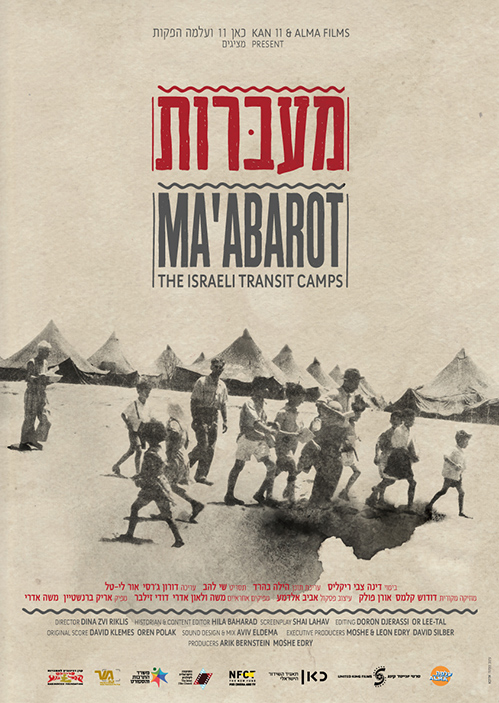Ma’abarot: The Israeli Transit Camps

The Jewish Museum of Maryland has a wonderful cadre of volunteers! All are eager to return to their pre-COVID responsibilities with the archives/library, the museum shop, the front desk, and tour giving. Meanwhile, most are staying in touch with the JMM by working on short term projects from home and participating in monthly and informative Zoom meetings.

An especially interesting Zoom gathering took place in the middle of April in conjunction with the Baltimore Jewish Film Festival (BJFF). It wouldn’t have occurred without the efforts of three of our volunteers who also are also members of the film festival committee: Roberta Goldstein, Sarah Levitas, and Howard Davidov. Front desk volunteer Roberta and docent Sarah suggested that we have a movie discussion based on one of the films being shown by the BJFF this spring. The film Ma’Abarot was chosen. It is a documentary on the controversial ma’abarot, transit camps that were built in Israel in the 1950’s. Roberta put us in touch with Israeli Keren Weisshaus who years ago lived in Milwaukie with Roberta’s daughter. Keren just happens now to be a consultant in establishing a museum in Jerusalem dedicated to the ma’abarot. She finds the topic fascinating and important in understanding Israeli society. And docent Howard connected us with his friend and Baltimorean Gigi Bormel who in 1950 lived in one of those camps after she left Romania.

From the film, we learned that Israel, a young and poor country, had few resources to support the large influx of Jews that arrived after 1948 from Europe and Arab lands. Tented transit camps were established to house the new arrivals. There were many cultural and language differences between the Askenazi and Arab Jews that resulted in conflict and misunderstanding

Keren and Gigi shared their personal stories which contributed to a very valuable and moving program about an event in Israeli history that was rarely told in detail, but has had lasting social consequences in Israel.
